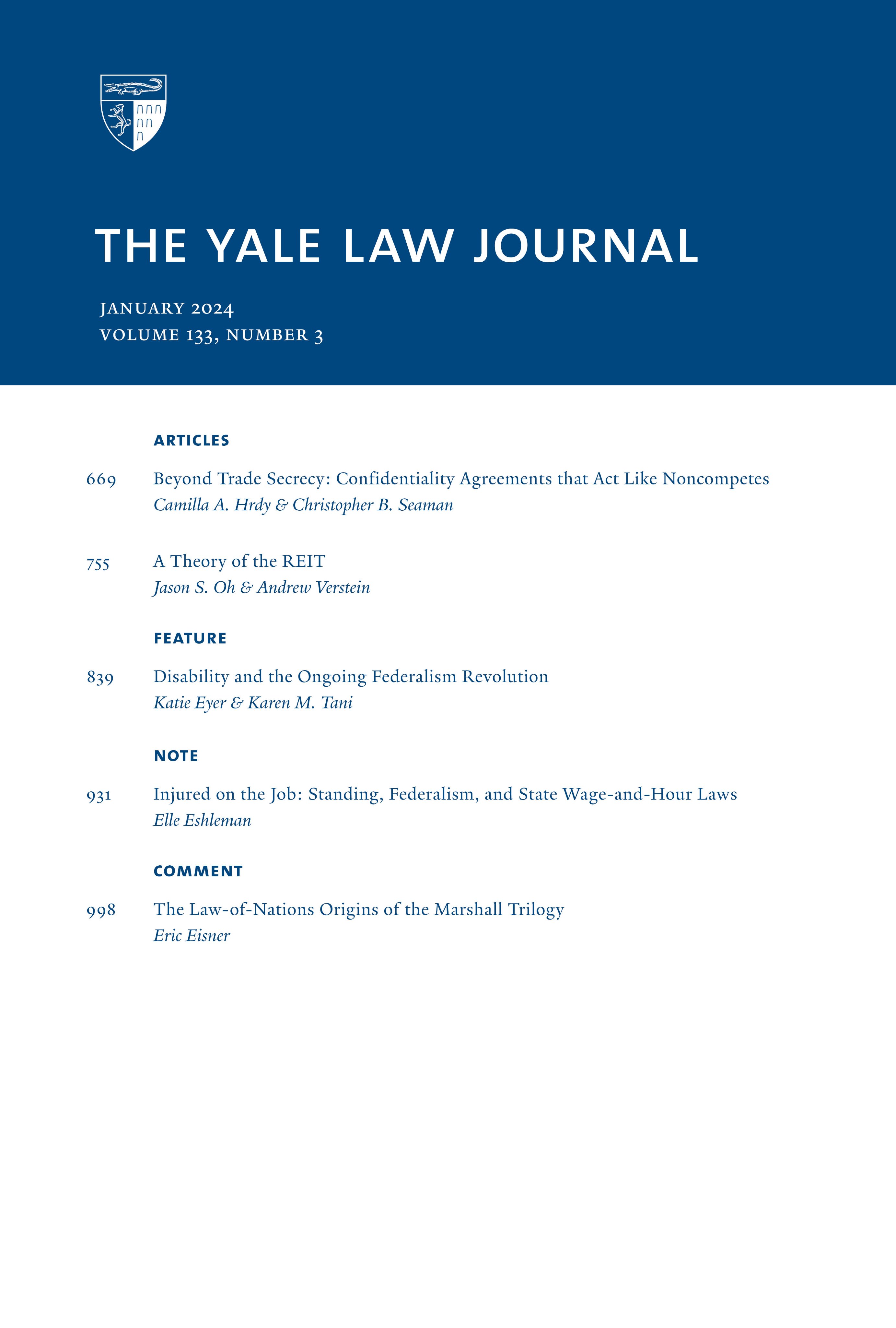比较公司刑事责任:通过比较刑事诉讼程序探索美国的独特学说
IF 5.2
1区 社会学
Q1 LAW
引用次数: 37
摘要
在美国,公司——作为实体——可以因个别董事、经理、甚至低级雇员所犯的罪行而受到刑事审判和定罪。从比较的角度来看,这种公司责任标志着美国相对独特。很少有其他西方国家规定实体责任,而那些规定实体责任的国家相对较少,受到的惩罚也要轻得多。为什么美国——实际上只有美国——强制企业承担刑事责任的问题一直是学术界关注的有限主题。本说明试图通过比较法的棱镜来填补这一空白。本文以德国——一个没有公司刑事责任的国家——作为陪衬,认为美国的原则最好不是通过刑事理论来解释,而是通过刑事程序来解释。美国的刑事诉讼程序给美国的调查人员和检察官在寻找单个白领罪犯时带来了独特的困难。但它也赋予了这些检察官不为德国同行所知的权力。其中包括威胁刑事起诉的权力,检察官可以强迫美国公司合作,放弃律师-当事人特权,切断与被调查的个别雇员的联系,从而促进对个别被告的起诉。本文利用刑事诉讼程序的差异而不是刑事理论来解释独特的美国原则,最后提出如何最好地利用刑事诉讼程序方法来理解——并有可能改革——越来越多的批评者谴责美国制度已经崩溃。作者。耶鲁大学法学院2008年法学博士;耶鲁大学,学士,2003年。作者希望感谢James Whitman教授对这个项目的启发,并对之前的草稿提供了广泛的反馈;Kate Stith和Steven Duke教授对这个项目和其他项目的宝贵指导;以及Greg Diskant, Paul Hughes, Richard Re和Nicolas Thompson对主题和先前草稿的非常有帮助的评论。比较企业刑事责任本文章由计算机程序翻译,如有差异,请以英文原文为准。
Comparative Corporate Criminal Liability: Exploring the Uniquely American Doctrine Through Comparative Criminal Procedure
In the United States, corporations—as entities—can be criminally tried and convicted for crimes committed by individual directors, managers, and even low-level employees. From a comparative perspective, such corporate liability marks the United States as relatively unique. Few other Western countries impose entity liability, and those that do impose such liability comparatively infrequently and under the threat of far less serious punishment. The question of why the United States—and the United States virtually alone—imposes corporate criminal liability has been the subject of limited scholarly attention. This Note seeks to fill that void through the prism of comparative law. Using Germany—a country that imposes no corporate criminal liability—as a foil, this Note argues that the American doctrine can best be explained not through criminal theory but rather through criminal procedure. American criminal procedure imposes unique difficulties on American investigators and prosecutors seeking to root out individual white-collar criminals. But it also imparts powers to those prosecutors that are unknown to their German counterparts. Among them is the power to threaten criminal indictment, one that allows prosecutors to force American corporations to cooperate, to waive the attorney-client privilege, and to cut ties to individual employees under investigation, thereby facilitating the prosecution of those individual defendants. Using differences in criminal procedure rather than criminal theory to explain the uniquely American doctrine, this Note concludes by suggesting how the criminal procedure approach can best be used to understand— and potentially to reform—an American system that critics increasingly decry as broken. author. Yale Law School, J.D. 2008; Yale College, B.A. 2003. The author wishes to thank Professor James Whitman for inspiring this project and providing extensive feedback on prior drafts; Professors Kate Stith and Steven Duke for their invaluable guidance on this and other projects; and Greg Diskant, Paul Hughes, Richard Re, and Nicolas Thompson for their very helpful comments on the topic and prior drafts. DISKANT OP 10/14/2008 11:37:14 AM comparative corporate criminal liability
求助全文
通过发布文献求助,成功后即可免费获取论文全文。
去求助
来源期刊

Yale Law Journal
LAW-
CiteScore
4.50
自引率
6.20%
发文量
0
期刊介绍:
The Yale Law Journal Online is the online companion to The Yale Law Journal. It replaces The Pocket Part, which was the first such companion to be published by a leading law review. YLJ Online will continue The Pocket Part"s mission of augmenting the scholarship printed in The Yale Law Journal by providing original Essays, legal commentaries, responses to articles printed in the Journal, podcast and iTunes University recordings of various pieces, and other works by both established and emerging academics and practitioners.
 求助内容:
求助内容: 应助结果提醒方式:
应助结果提醒方式:


